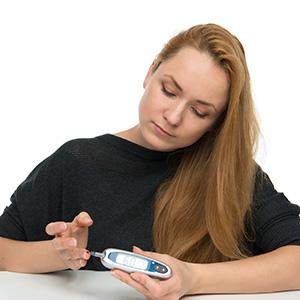Bina Patel, 59 has Type 2 Diabetes and lives in Vadodara, Gujarat. She talks of her challenges in managing her condition and hopes her learnings and tips will help the community. Also, which home remedies work?
Bina, when were you diagnosed?
I was diagnosed with Type II Diabetes at the age of 47 (about 12 years ago). One day, I just couldn’t get out of bed and so I met my GP about it. He suggested I get a blood test done. The blood test showed my blood sugar to be 300 mg/dl. At the time my GP…

Hypoglycaemia or a sharp drop in blood sugar levels can cause severe discomfort and dizziness and, in some extreme cases, even death. Dr Roshani Sanghani, renowned endocrinologist and the founder of Aasaan Health Solutions shares valuable tips on how to tackle a condition which can afflict any person with diabetes at any given time.
Many patients are troubled by sudden and unexpected blood sugar levels dropping. When the level drops below 70 mg/dl, it is considered hypogylcemia! Hypogylcaemia is considered a matter of concern and should be addressed immediately.
Follow these quick and easy steps when hypogylcaemia hits or blood sugar drops below 70 mg/dl:
- Watch out for signs of Hypogylcaemia such as shaking, dizziness, headache, excessive sweating, anxiety, irritability etc.
- Measure the blood glucose levels using a home glucometer device.
- Drink 150 ml of plain milk or 75ml of any fruit juice (fresh or processed). The idea is to intake 15 grams of carbohydrate to raise the blood glucose levels by 15 points.
- Rest for 15 minutes and recheck the blood sugar levels.
- If the levels have risen, just try to relax. If levels have not risen, then repeat steps 3 & 4.
- Keep a diary of food intake and medication dosage to investigate the trigger you’re your hypogylcemia. This will help you to avoid such triggers in the future.
- Inform your doctor about your hypogylcaemia episode at your next visit. If medication is causing the drop, then your doctor may decide to lower your dosage.
Pic below: Dr. Roshani conducting an information session for patients at her clinic.

Changed
03/Nov/2017
Community
Condition
















